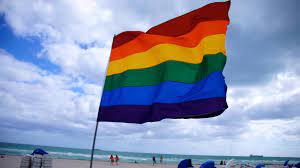
The gay panic defense, a pro-hate-crime legal strategy against LGBTQ people, is being fought by Democratic lawmakers in Florida. Sen. Lauren Booker and Rep. Carlos Smith filed a defense against this strategy in the House and Senate on Sept. 28 to outlaw it in the next legislative session.
The defense is defined by the LGBTQ+ Bar as a legal strategy wherein a victim’s sexual orientation or gender identity is to blame for the defendant’s violence.
This strategy encourages homophobic and transphobic hate crimes, and Florida lawmakers should pass its prohibition.
While not a free-standing criminal defense, it’s used to back other defenses. When used in court, it’s essentially claiming the victim’s sexuality or gender excuses the violence committed against them, devaluing LGBTQ lives.
The gay panic defense is used in one of three ways when attempting to lighten a murder case to manslaughter or justified homicide, according to the LGBTQ+ Bar. This includes defense of diminished capacity, provocation and self-defense.
This defense of diminished capacity is centered around the baseless psychological term “gay panic disorder,” which is when someone is thrown into a temporary violent state after a nervous breakdown upon discovering someone’s sexual orientation or gender.
This was disproved decades ago, however, in 1973 by the American Psychiatric Association and removed from the Diagnostic and Statistical Manual of Mental Disorders.
Defense of provocation is when nonviolent sexual advances are argued to be provocative enough to justify murder when the victim making advances is an LGBTQ-identifying individual. Self-defense is also used in tandem with the gay panic defense.
Both of these villainize LGBTQ individuals, making the unjustifiable claim that they’re more likely to make violent sexual advances than straight or cisgendered people, and the defendant was therefore in imminent danger.
The self-defense claim was most recently successfully used in a 2018 murder trial regarding the September 2015 murder of Daniel Spencer, who was stabbed to death by his neighbor, James Miller in Texas.
Miller claimed Spencer had made violent sexual advances toward him, causing Miller to kill him. Despite having no evidence of this, his defense was seen to be valid, resulting in a light sentence of 10 months probation and six months maximum in jail.
There are 16 states that have already banned the use of gay panic defense, the most recent being Maryland on Jan. 13. Florida could be the 17th state to join this movement.
The gay panic defense is based in bigotry, and allows perpetrators of hate crimes to avoid proper consequences. If Florida lawmakers care about the safety of the LGBTQ community, they should prohibit this defense from being used in any Florida court.








